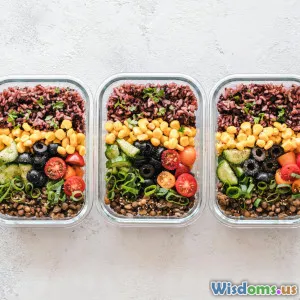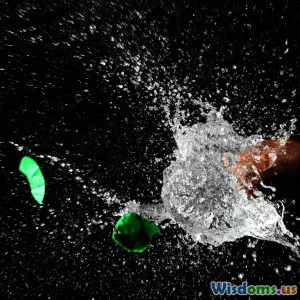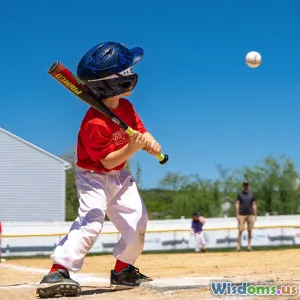
Boost Your Performance with Proper Hydration
8 min read Learn how proper hydration enhances athletic performance and overall health. (0 Reviews)
Boost Your Performance with Proper Hydration
When it comes to enhancing athletic performance, one critical factor often goes unnoticed: hydration. Many athletes understand the importance of training schedules, nutrition, and recovery, yet the vital role that water plays can sometimes be overlooked. Amidst growing awareness about fitness and wellness, understanding hydration becomes essential, not just for professional athletes but also for anyone engaging in physical activity.
Why Hydration Matters
Hydration is not just about quenching thirst. It is a critical component of physical health. When adequately hydrated, you can improve not only your physical performance but your reactions and cognitive responses too. Over just a 2% body weight loss, which can occur with minimal dehydration, athletes can start experiencing a decrease in performance.
The Role of Water in the Body
Water serves multiple essential roles in the body, including:
- Temperature Regulation: Sports activities often lead to increased body temperature. Water helps cool the body through sweating.
- Nutrient Transportation: Water facilitates the transport of nutrients to your muscles, enhancing endurance and performance.
- Joint Lubrication: Proper hydration can prevent joint pain and injuries, providing support during peak performance.
- Waste Removal: Water is necessary for kidney function, where toxins and excess nutrients need to be expelled from the body.
Thus, hydration plays a pivotal role in maintaining overall body function, particularly during and after intense physical activities.
How Much Water Do You Need?
Brewing tension historically exists about the 'ideal' amount of water one should drink. While the oft-cited 8x8 rule (eight 8-ounce glasses a day) is a common benchmark, studies suggest that individual needs vary. Factors affecting your hydration include:
- Level of Activity: Athletes engaged in rigorous workouts require more water than couch potatoes.
- Environment: Hot, dry weather can lead to quicker loss of fluids through sweat.
- Body Composition and Size: Larger individuals may need more water to maintain hydration.
To assess your hydration levels reliably, monitor the color of your urine; a pale yellow indicates good hydration, while dark yellow suggests a need for additional fluids.
Hydration and Sport-Specific Demands
Different sports impose different hydration needs. Here’s an analysis of how various sports require unique hydration strategies:
- Endurance Sports (e.g., running, cycling): These athletes may need to consume 750-1000 mL per hour during activities lasting longer than one hour. Using electrolyte-rich drinks can help replenish lost salts along with fluids.
- Team Sports (e.g., soccer, basketball): Due to intermittent, high-intensity bursts of activities, hydration should occur before, during, and after a game with fluid containing electrolytes and sugars for energy replenishment.
- Strength Training: While hydration needs may be comparatively lower, it is still essential to ensure muscle function and recovery. Aiming for 250-500 mL of water during workouts is generally suggested.
Timing Your Hydration: Pre, During, and Post-Exercise
Understanding when to hydrate is crucial for maximizing performance. Here’s how:
Pre-Exercise Hydration
- 1-2 Hours Before Activity: Drink 500-600 mL of water to promote optimal hydration before the commitment.
- During Eating: If you consume water-rich foods, it can contribute to your overall hydration needs as they help you retain water better.
During Exercise
- Beyond the Initial Hour: Continue drinking. Aim for 150-300 mL every 15-20 minutes depending on the intensity of the exercise.
- Electrolytes: Use sports drinks that contain an adequate amount of electrolytes to maintain energy levels during prolonged sessions.
Post-Exercise Hydration
- After the exertion period, replacing lost fluids is vital. Aiming for 1.5 times the fluid lost through sweat will prevent dehydration and engage quicker recovery.
- Also consider consuming water-rich foods such as fruits to assist your body further.
Hydration Metrics: Understanding Sweat Rate
Understanding your personal sweat rate can provide vital information on how much fluid you need to replace during physical activity.
-
Weigh yourself before exercise (without clothes).
-
Exercise for one hour under normal conditions.
-
Weigh yourself again after your workout (without clothes) and mark any fluid consumed.
-
Calculate your sweat rate using the following formula:
Sweat Rate (mL/hr) = (Initial weight - Final weight) × 1000 + Fluid consumed (mL) during the hour
-
This metric helps guide future hydration strategies.
Common Hydration Myths Debunked
Proper hydration faces many misconceptions. Let’s debunk a few:
- Myth: Only drink when thirsty.
- Reality: Thirst is a late sign of dehydration. Regular fluid intake is essential.
- Myth: Carbonated drinks hydrate better than plain water.
- Reality: Many carbonated beverages have sugar that can lead to dehydration; opting for plain water is safer.
- Myth: Consuming too much water can be harmful.
- Reality: While water intoxication is rare, adequate intake is often crucial for elite performance.
Conclusion
Proper hydration is a cornerstone of performance in the realm of sports and exercise. For athletes and fitness enthusiasts alike, staying ahead of dehydration can mean the difference between peak performance and subpar results. Identifying hydration needs based on physical demands, timing your water intake effectively, and understanding personal sweat rates are just some of the ways you can elevate your athletic endeavors. As you reframe your energy strategies, always remember: water equals performance. Equip your arsenal with this knowledge and watch your game improve. Prioritizing hydration today means a stronger performance tomorrow.
Remember, there lies a world of difference in your hydration regimen. Take that leap—and hydrate your way to success!
Rate the Post
User Reviews
Popular Posts





















